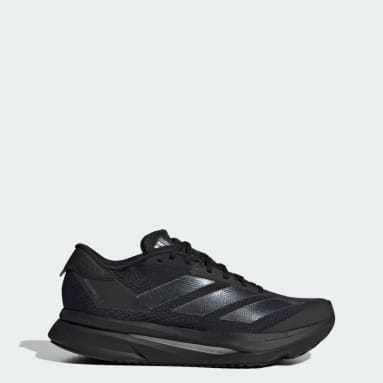Running shoes
[325]Experience ultimate comfort and performance with Adidas running shoes. No matter the run you're taking on, our innovative technologies will keep you at your best whether you're running to race or looking for an extra boost.
Our clothing and shoe categories
- Boys Running
- Boys Running Shoes
- Caps Running
- Girls Running
- Girls Running Shoes
- Kids Running
- Kids Running Shoes
- Mens Running
- Mens Running Shoes
- Running
- Running Jackets
- Running Pants
- Running Shoes
- Running Shorts
- Running Tights
- Womens Running Shoes
- Running Accessories
- Womens Running
Running Shoes
Is it okay to walk in running shoes?
Yes. adidas walking shoes are the same as our running shoes because every stride deserves the same high-performance comfort, no matter the speed. To find the right pair of walking shoes, think about the same features as you would for running shoes.
What is a stability running shoe?
A stability running shoe is one with specialized support to keep your foot in a neutral position if you overpronate with your natural gait.
Do I need a stability running shoe?
If your ankle and foot rolls inward, that means you overpronate. Stability running shoes are specifically designed for extra arch support and stability prevent your foot from turning too far inward.
Should running shoes be heavy or light?
It depends on the type of running you're doing. For example, adidas has lightweight running shoes that keep up with your need for speed and are the go-to choice for intervals and speed training.
What's the difference between running and training shoes?
Training shoes are built for a wide range of movement, especially side-to-side or lateral movement. If extreme cushioning and energy-return is what you’re looking for, adidas training shoes with Boost and Bounce midsoles have you covered.
How often should I replace my running shoes?
Generally, you should replace your running shoes every 300 to 500 miles, or roughly every four to six months if you average 20 miles per week.























































